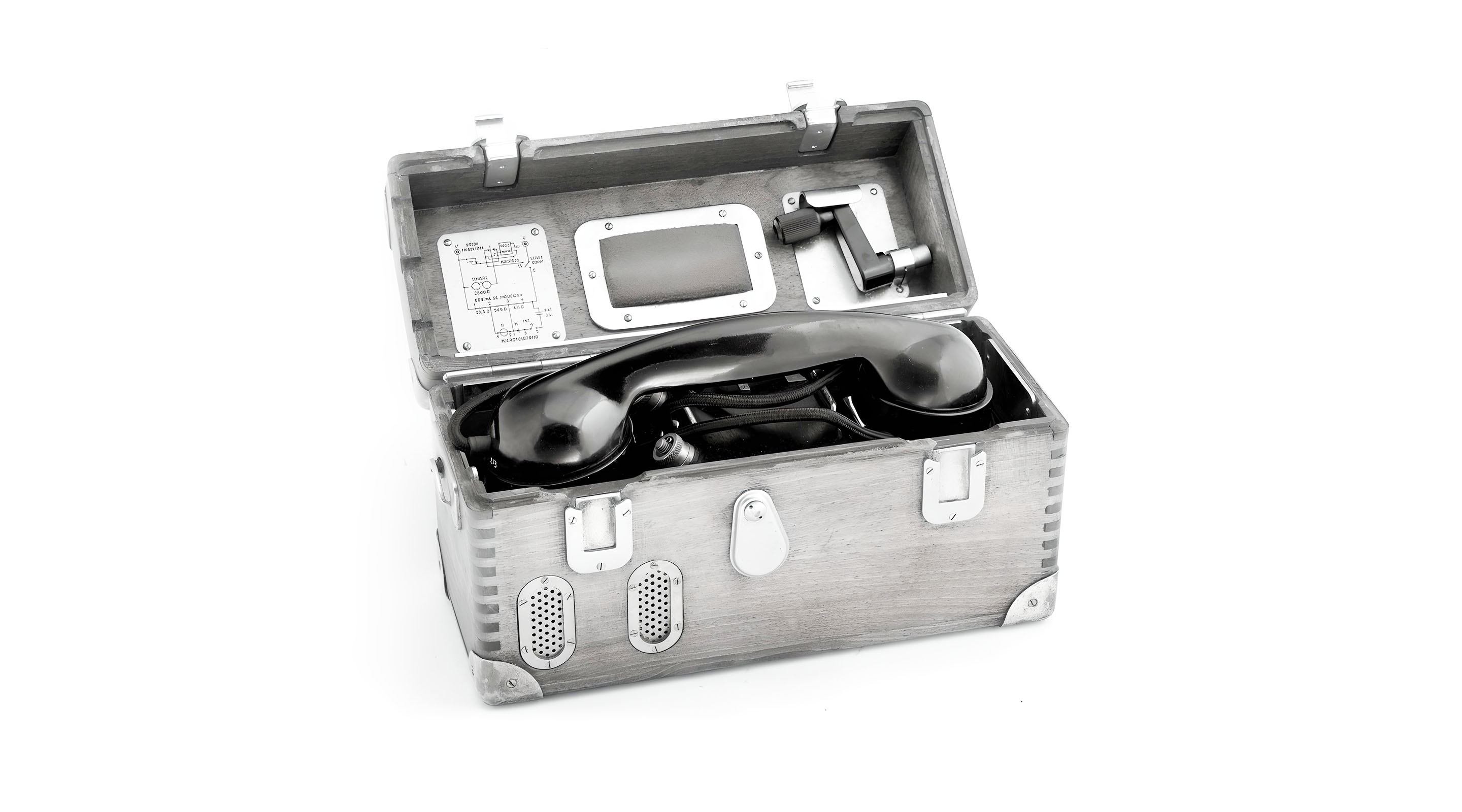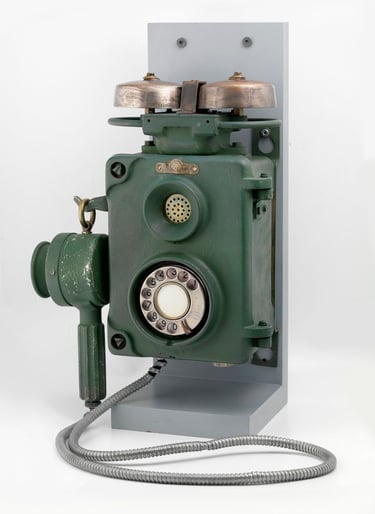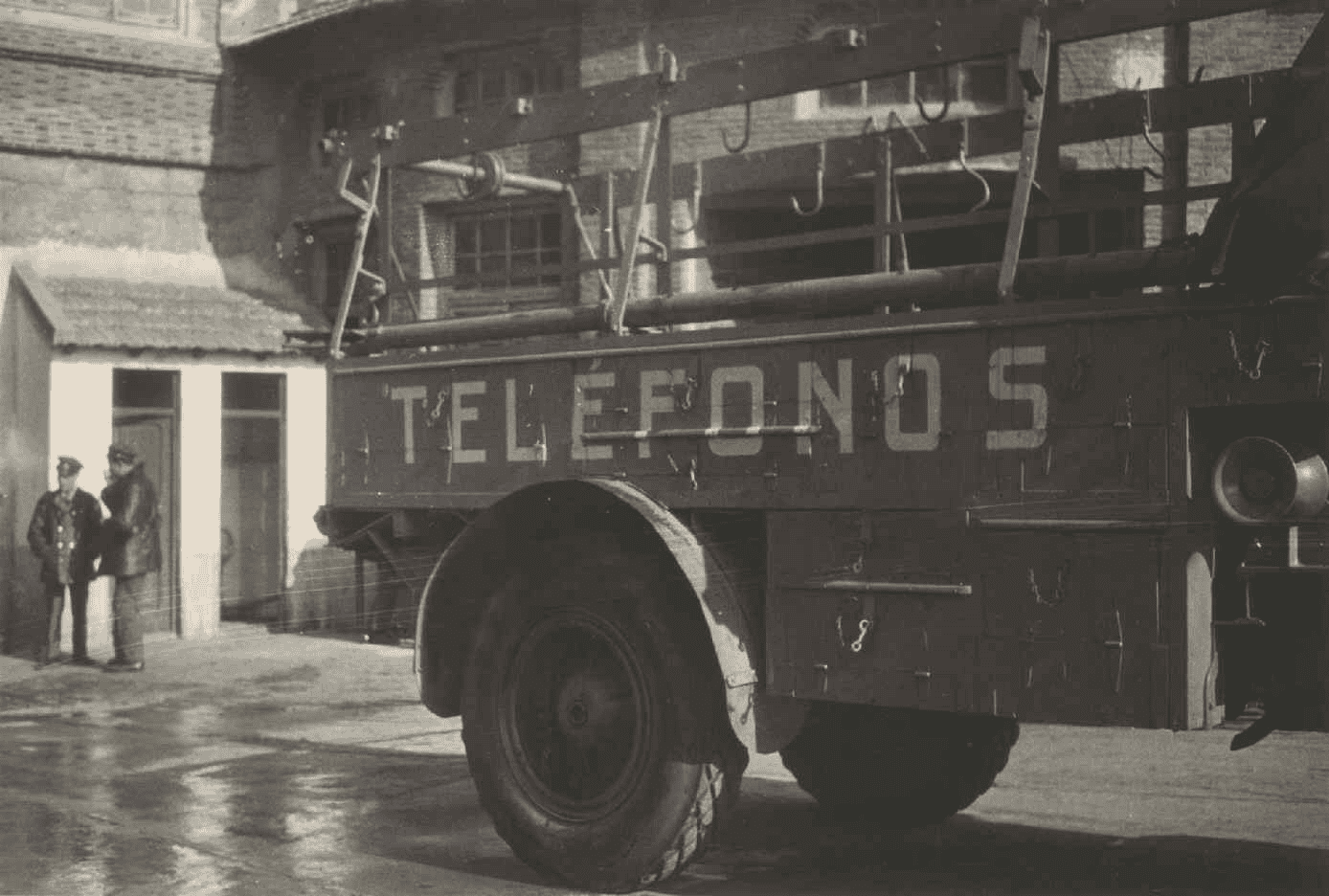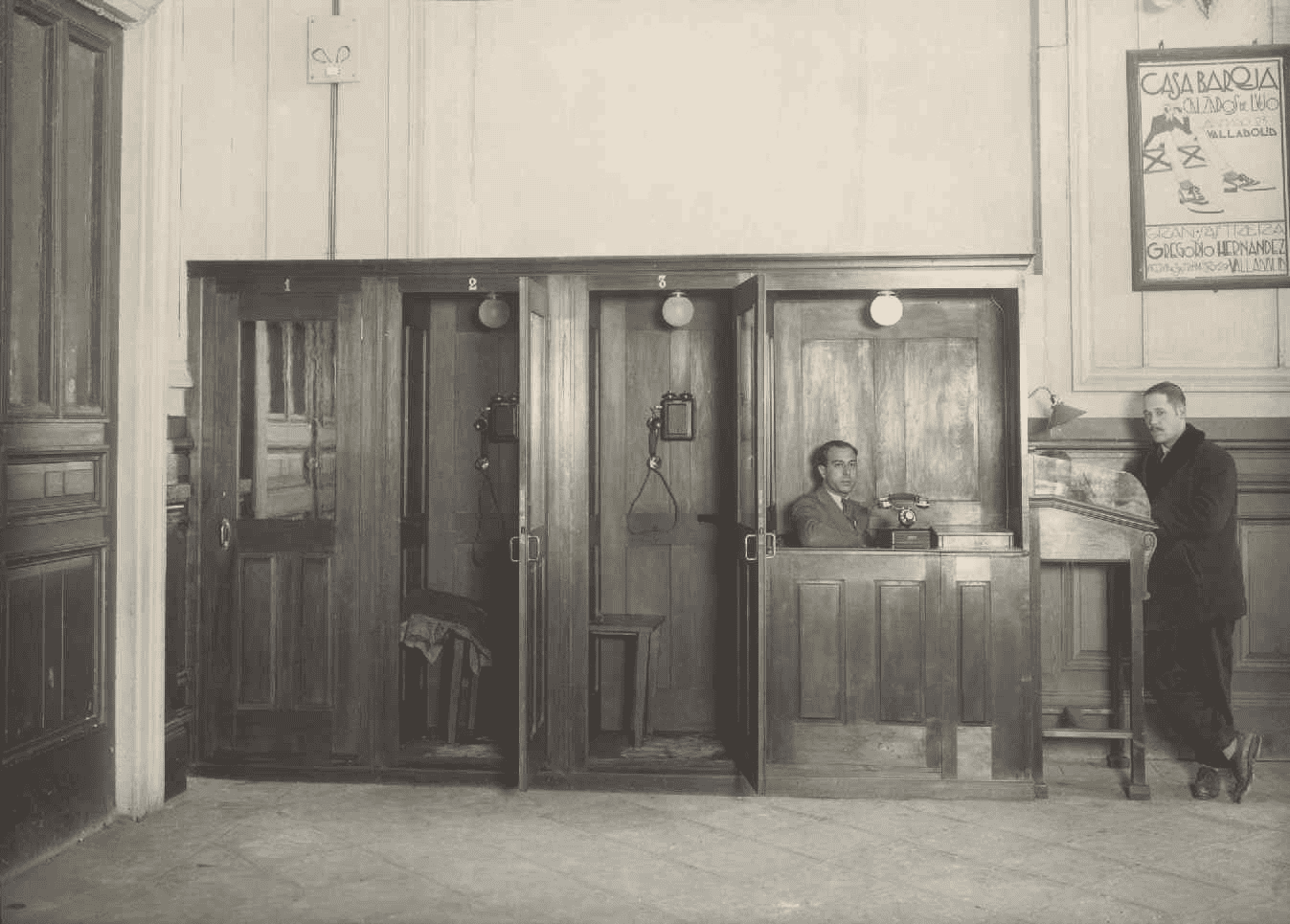
1941

Scarcity sharpens the imagination. The CTNE's ingenious technicians manage to obtain more copper to continue deploying thanks to a brilliant idea: narrowing the diameter of the circuits.
Imaginative solutions for tough years
01
The CTNE in the early 1940s faced, like all social agents, companies and families, a multitude of problems resulting from the recent Civil War, which had ended only two years earlier. From a financial point of view, the CTNE found it difficult to get its accounts for the war period approved by the new government. Differences of opinion on investments, manpower and services provided in both the national and republican zones delayed, year after year, the approval of the company's figures and, with it, the taking of some important decisions. Nor did CTNE get the authorisation to raise telephone service tariffs to undertake new investments and create new services... and to raise the salaries of all its staff by 20% to alleviate to some extent the hardship of post-war times. As the authorisation was not forthcoming, the management replaced this salary increase with three "extraordinary bonuses" for each employee during 1941. Three "tips" that surely brought bread and a little joy to thousands of households. Another complicated problem for that CTNE was that of obtaining materials to continue building infrastructure. Imports were slow and cumbersome with Europe between two world wars, and domestic manufacturing was non-existent. Despite the cooperation of ITT and its subsidiary, Standard Eléctrica, the laying of the cable was almost mission impossible. Copper, for example, was clearly insufficient and demand was growing all the time. Then, imagination - this time without limits or export problems - led our technicians to devise a procedure for redistributing the circuits in such a way that, by dismantling some lines and reducing the diameter of the copper filaments, no less than 800 tonnes of copper were obtained, which were used to build 56,000 km of urban circuits and to reinforce 1,800 km of long-distance circuits. Imagination, efficiency and sustainability. Pure Telefonica.

CTNE returns to its pre-Civil War status
02
After the division into two general managements, one in the Republican zone with American managers and the other in the Nationalist zone, with exclusively Spanish personnel, and even after the opening of a legal-military process against four of the American managers of CTNE, in 1941 the situation returned to what it had been before the war. After many months of diplomatic negotiations between the United States and Spain, ITT managed to regain effective management of CTNE.

Do you have doubts about what happened?
Ask Aura